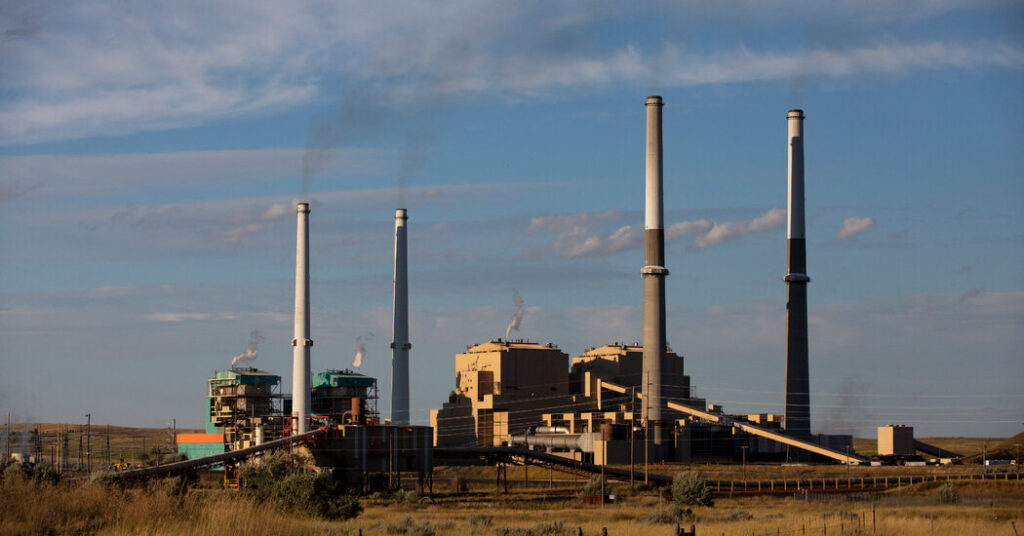The nation’s most polluting coal-burning power plant has asked President Trump to exempt it from stricter limits on hazardous air pollution after the administration recently invited companies to apply for presidential pollution waivers by email.
The aging Colstrip power plant in Colstrip, Mont., emits more harmful fine particulate matter pollution, or soot, than any other power plant in the nation, Environmental Protection Agency figures show. A new rule adopted by the Biden administration in 2023 would have compelled the facility — the only coal plant in the country to lack modern pollution controls — to install new equipment.
Now, the Colstrip plant has applied for a two-year exemption to those rules, according to Montana’s congressional delegation, which backed the request.
The new pollution standard “endangers the economic viability of the plant, which if closed, would undermine the region’s electric grid,” Senator Steve Daines and other members of the delegation wrote in a letter sent on Monday to the E.P.A. administrator, Lee Zeldin. “Without Colstrip, consumers would bear the burden of higher energy costs and grid unreliability, and its closure would stymie economic development in the region.”
Health experts noted that the letter didn’t address the health effects of the fine pollution particles. Numerous studies have shown the particles are small enough to penetrate deep into the lungs and enter the bloodstream, where they can travel to the heart and other organs, increasing mortality from cardiovascular and respiratory diseases.
A 2023 study showed that coal-burning power stations, in particular, emit fine particulates containing sulfur dioxide linked with higher mortality than other types of pollution.
This pollution “can be very damaging to young kids in particular, who have developing lungs,” said Robert Merchant, a pulmonologist in Billings, Mont. The delegation’s letter, he said, shows “a complete indifference to the health harms.”
The Colstrip plant’s request for an exemption from stricter pollution rules came after the E.P.A. told companies last month that they could apply for waivers to major clean-air rules by emailing the agency. The E.P.A. pointed to a section of the Clean Air Act that enables the president to temporarily exempt industrial facilities from new rules if the technology required to meet those rules isn’t available, and if it’s in the interest of national security.
The Trump administration has also announced its intention to roll back a slew of rules entirely, which could eventually mean that plants like the one in Colstrip would not have to meet new pollution standards at all.
The move was part of a wider effort by Mr. Zeldin to steer the agency away from its original role of environmental protection and regulation and toward making energy and cars more affordable.
NorthWestern Energy Group and Talen Energy, which operate the plant along with other minority owners, did not immediately respond to comment.
Any exemption granted by the Trump administration is likely to face legal challenges from environmental groups. In drawing up the new rules, the Biden administration had identified technology already available that would allow the Colstrip facility to meet stricter standards, and that had been widely adopted by other coal plants in the country.
The Biden administration also estimated that the new pollution control technology would cost far less to install than the $500 million the Colstrip plant has said it would take.
“These technologies are available,” said Amanda Levin, director of policy analysis at the Natural Resources Defense Council, an environmental advocacy group, “but Colstrip decided not to invest when every other coal plant in the nation did.”

